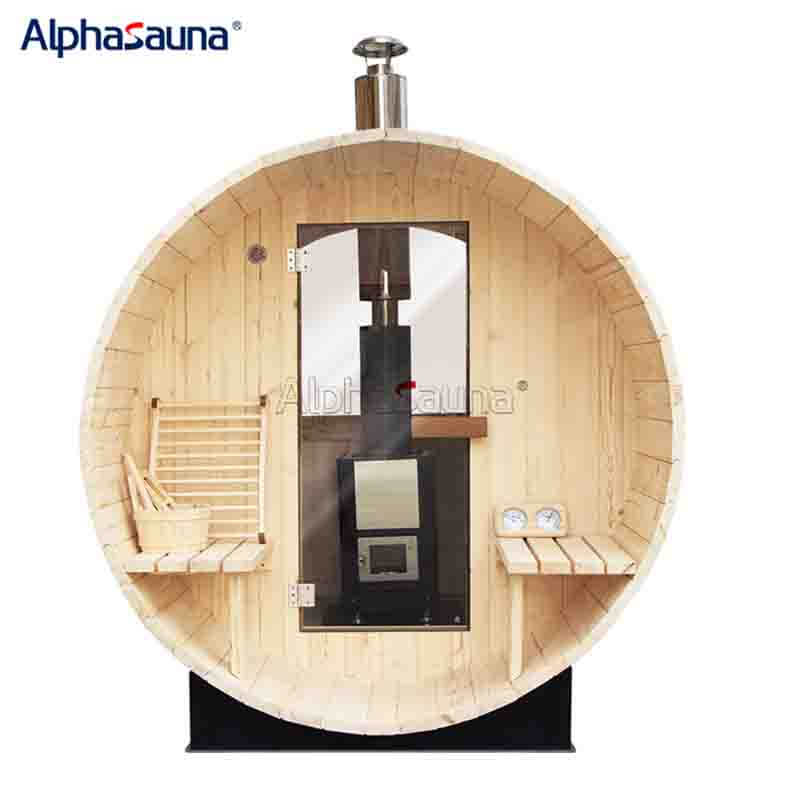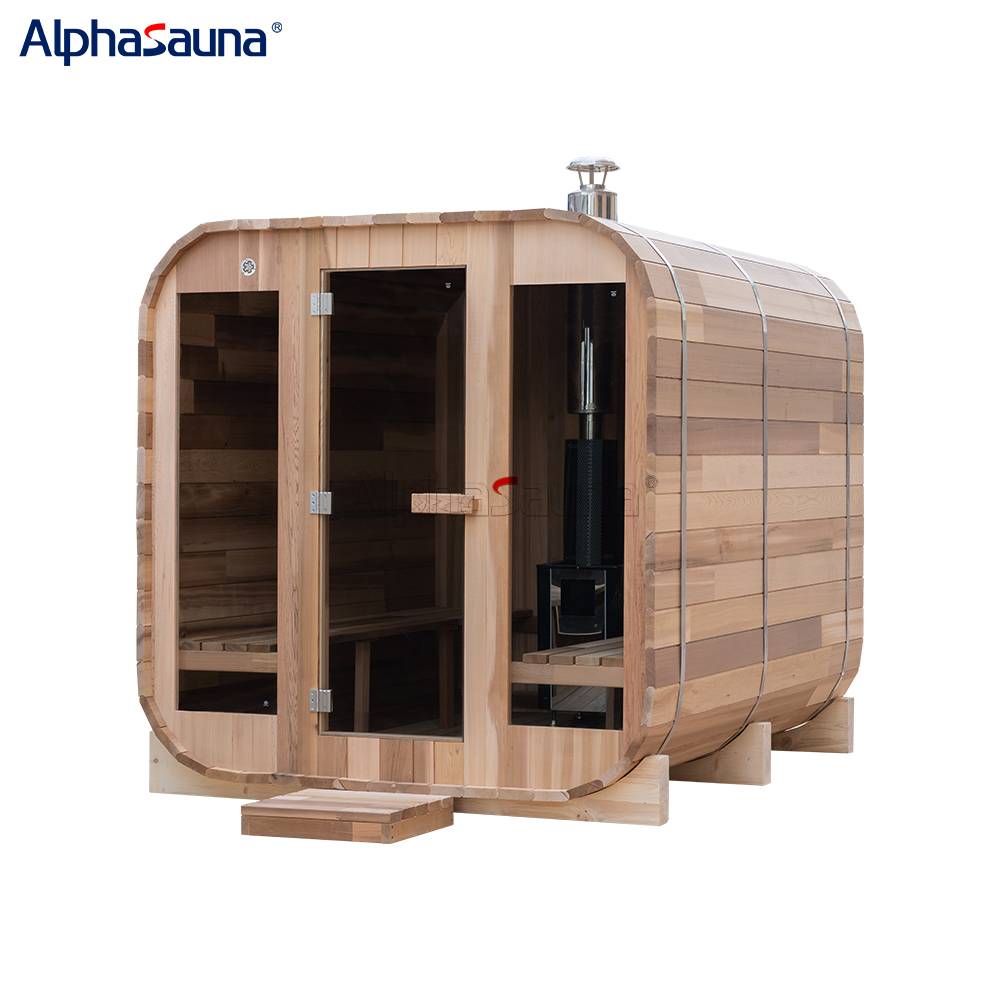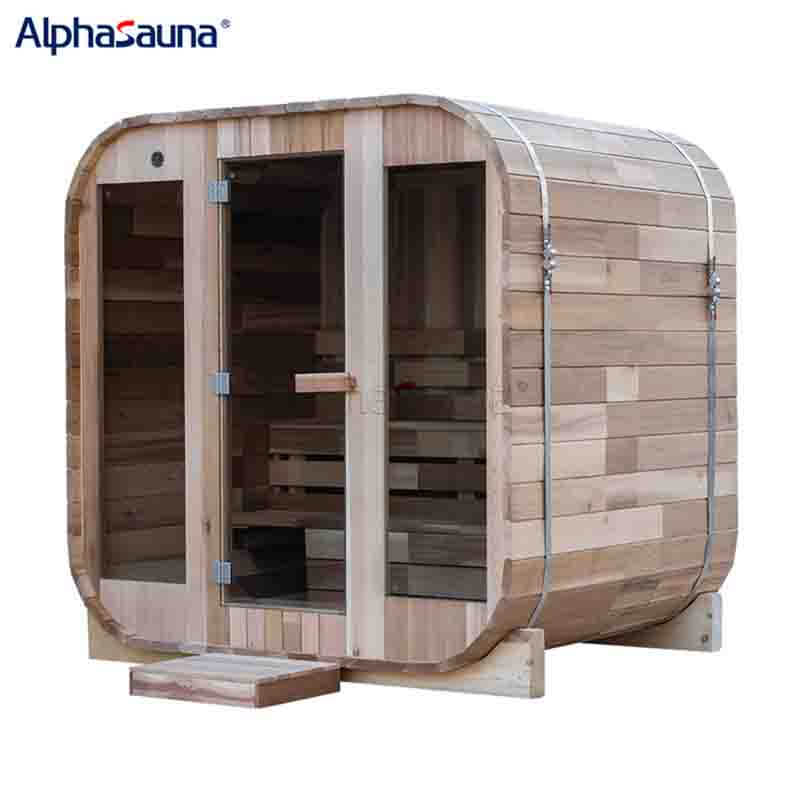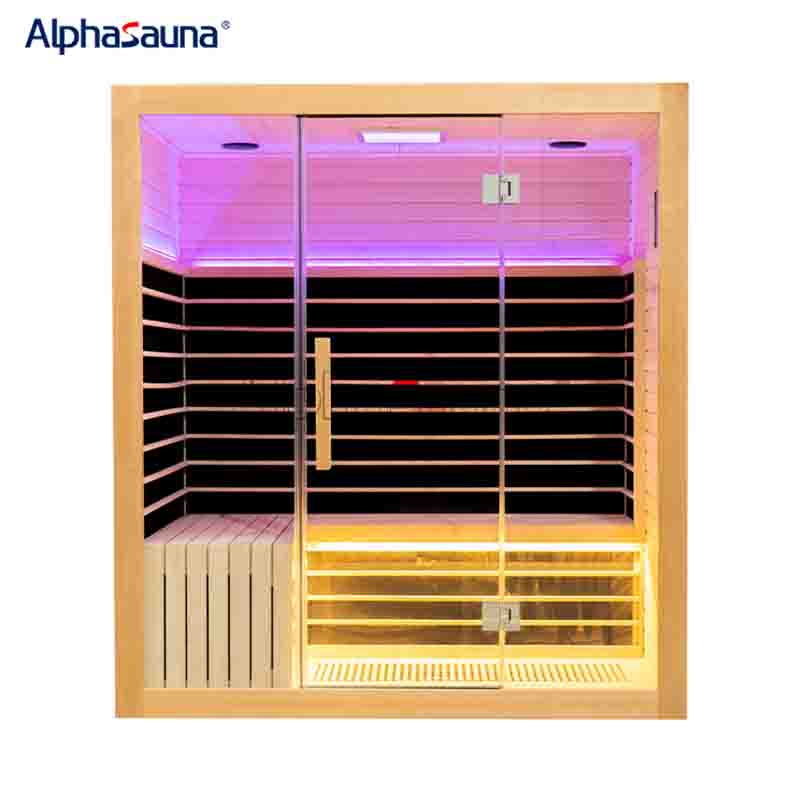In today's fast-paced lifestyle, more and more people are seeking various ways to alleviate fatigue, release stress, and relax both body and mind. Saunas have emerged as the optimal choice for this purpose. The comforting environment of a sauna enables individuals to unwind, shed weariness, relieve stress, and improve overall well-being. As saunas become increasingly popular for relaxation and fatigue relief, people are also becoming more attentive to potential safety hazards associated with their use. Research indicates that sauna usage may entail certain health risks, prompting individuals to seek methods to mitigate or minimize these risks. Let's unveil the warning signs and explore how to enjoy saunas in a healthy and safe manner.

What Are The Risks Of Sauna Use?
1. Dehydration:
The high temperature environment of a sauna can cause significant sweating, leading to excessive loss of water and potential harm to the body, possibly resulting in dehydration or heatstroke. Therefore, it is important to stay hydrated during sauna sessions, and after sauna use, replenishing fluids and electrolytes with sports drinks is recommended.
2. Cardiovascular Diseases:
The high temperature environment of a sauna may adversely affect individuals with cardiovascular diseases. The heat can cause blood vessels to dilate, promoting blood flow and potentially raising blood pressure. For individuals with cardiovascular diseases, sauna use may increase the burden on the heart and elevate the risk of cardiovascular events.
3. Skin:
Sauna usage also carries certain risks for the skin. The sauna environment is typically hot and dry, which can lead to risks suchas skin dryness and burns with prolonged exposure. In environments where saunas are humid and lack proper ventilation, bacterial, fungal, and viral growth may occur, potentially leading to skin allergies and other symptoms, causing harm to the skin.
4. Discomfort:
Prolonged sauna sessions may cause various forms of discomfort, such as dizziness, nausea, fatigue, chest tightness, and difficulty breathing. Therefore, it is important to be mindful of the duration of sauna use, avoiding prolonged exposure to high temperatures to prevent discomfort and adverse effects on the body. Overall, while saunas can offer many benefits to the body under normal circumstances, they also entail certain risks. By considering and mitigating the risks mentioned above, one can prevent harm to the body and reduce the likelihood of adverse events. Additionally, it is important to stay hydrated during sauna use, maintain sauna temperatures within safe and comfortable ranges, and be mindful of the duration of sauna sessions. Individuals with health issues or special conditions, such as cardiovascular diseases, hypertension, respiratory disorders, as well as children, the elderly, and pregnant women, should exercise caution when using saunas. Consulting a doctor regarding one's health condition before sauna use is advisable to ensure the safety and effectiveness of sauna usage.

How To Avoid Harm To The Body Caused By Sauna?
1. Temperature And Duration:
Proper temperature and duration are essential to ensure the safety of sauna usage and reduce the risk of accidents. Maintaining the sauna room temperature within a comfortable range, typically between 70 to 90 degrees Celsius, helps prevent discomfort and adverse effects on the body. Additionally, controlling the duration of sauna sessions is crucial, as prolonged exposure to high temperatures may lead to dehydration, heatstroke, and other adverse symptoms.
2. Hydration:
Replenishing fluids in a timely manner can mitigate or prevent harm to the body and skin during sauna use. The body may lose significant amounts of water through sweating during sauna sessions, resulting in skin dryness and dehydration. Moreover, it is advisable to avoid alcohol and caffeine before sauna sessions, as they can exacerbate fluid loss and increase the risk of dehydration.
3. Fasting Or Full Stomach:
It is important to avoid sauna sessions on an empty or full stomach to prevent adverse effects on the cardiovascular system. Exposing the body to high temperatures in a fasting or full stomach state may increase the cardiovascular system's burden and potentially lead to complications in individuals with cardiovascular diseases. Therefore, it is recommended to have a moderate meal before sauna sessions to replenish energy and avoid fatigue and dizziness due to excessive energy consumption.
4. Monitoring Body Condition:
During sauna sessions, it is essential to monitor one's body condition closely. If any discomfort such as dizziness, nausea, fatigue, or difficulty breathing occurs, it is crucial to leave the sauna immediately and seek rest and recovery in a comfortable and well-ventilated area.
5. Frequency Of Use:
Excessive sauna usage can pose risks to health. It is generally recommended to use the sauna one to three times per week to avoid potential harm and maintain overall health.
6. Health Status:
Sauna usage may not be suitable for everyone, especially individuals with pre-existing health conditions. Patients with cardiovascular diseases, hypertension, hypotension, respiratory disorders, and other health issues should use saunas cautiously, preferably under medical supervision, to ensure safety and effectiveness.
7. Avoidance Of Alcohol And Medications:
Alcohol consumption may impair cognitive function and increase the risk of accidents, especially in the high-temperature environment of a sauna. Certain medications may also interact adversely with high temperatures, causing discomfort and increasing the risk of adverse effects on the body.
In summary, improper sauna usage can lead to potential risks and harm to the body. It is essential to strictly adhere to the sauna's instructions and regulations to ensure safe usage. By considering and mitigating the risks mentioned above, individuals can reduce the likelihood of sauna-related incidents. It is advisable to seek guidance from professionals to ensure sauna safety.

Questions And Answers About Saunas
1、Can You Sauna After Botox?
Generally speaking, it is not recommended to sauna after receiving botulinum toxin injections. However, specific situations should be discussed with a doctor, who will make a judgment based on your individual health condition. Typically, after receiving botulinum toxin injections, it is advised to avoid vigorous exercise that may exert excessive pressure on the body to ensure the effectiveness of the treatment. Sauna sessions may elevate body temperature, potentially impacting the effectiveness of botulinum toxin and causing adverse effects on the body. Therefore, it is advisable to refrain from sauna and other vigorous activities after botulinum toxin injections to prevent harm to the body. It is recommended to consult a doctor regarding the appropriate timing for sauna use after botulinum toxin injections and to follow their advice to ensure a comfortable and safe sauna experience.

2、Can You Pour Water On An Electric Sauna?
Generally, electric saunas can be used to pour water, but there may be some safety hazards. Specific instructions should be consulted from the manufacturer. Electric saunas typically refer to sauna equipment heated by electricity. Pouring water is a common practice in sauna culture, generating steam by pouring water onto the sauna rocks to provide heat and humidity. However, for electric saunas, pouring water can pose safety hazards if done improperly or in a non-standard manner, potentially leading to electric shock or equipment malfunction. Manufacturers typically provide detailed user manuals to ensure proper and safe operation. Users should follow these guidelines when pouring water to ensure correct and safe operation. Alternatively, consulting professionals on how to properly pour water in the sauna room to provide heat and steam can ensure the safety and effectiveness of the sauna.

3、How To Fold Sauna Towel?
There are no specific requirements for folding sauna towels, and it can be done according to personal preferences and habits. Generally, start by laying the sauna towel flat to prevent wrinkles. Then, neatly fold the sauna towel along the edges, folding it twice to form a rectangle. From there, start rolling the sauna towel from the short edge, which helps minimize space occupation and facilitates easy access. This is a common folding method, but individuals can also choose based on their preferences. Some prefer to fold towels flat directly, while others like to roll them for storage. Depending on personal preferences and needs, folding methods can be adjusted accordingly. There are also more complex yet aesthetically pleasing folding techniques that can be found online tutorials. Although these methods are visually appealing, they are time-consuming and not very suitable for everyday sauna towel folding. For most people, simple and convenient folding methods are more suitable for household use.

My Thoughts On Avoiding Sauna Injuries Are
Sauna is a healthy journey that can relax the body and mind, uplifting the mood not only physically but also psychologically.
Despite being a relaxing and enjoyable experience, saunas come with certain risks. While indulging in sauna sessions, it's crucial to
be mindful of these potential risks. By implementing safety measures to mitigate these risks, one can refer to the safety precautions
mentioned above or consult the instructions and user manuals provided by manufacturers to minimize the potential risks and harm associated with saunas.
Opting for reputable sauna facilities can also help reduce the risks associated with sauna usage. Alpha Sauna's sauna rooms utilize
advanced heating technology and high-quality materials, ensuring comfort and safety for users. Our diverse range of sauna room
types caters to various user preferences, ensuring that users can fully enjoy a comfortable sauna experience. Alpha Sauna is a specialized
supplier of sauna facilities, offering indoor square traditional sauna rooms, indoor infrared sauna rooms, outdoor barrel saunas
for 3 to 5 people, and more. Users can choose according to their preferences and needs, creating a cozy and relaxing sauna environment.














